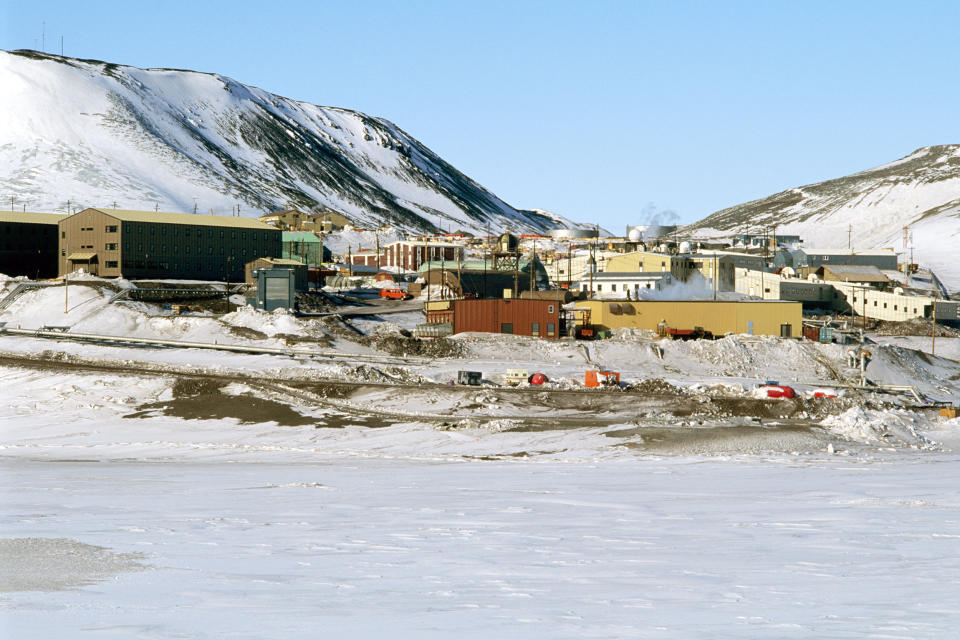At one of Earth's most remote research stations, Covid is still a problem
An outbreak of Covid at the McMurdo Station in Antarctica has disrupted life for researchers and support staffers at the southern end of the world.
McMurdo Station had 73 total confirmed cases as of Thursday afternoon, according to a statement provided to NBC News by Amanda Hallberg Greenwell, a National Science Foundation spokesperson. The research station has a population of 885, the statement said, meaning more than 8% of those have tested positive for the coronavirus so far.
The outbreak is a reminder that Covid is still a threat to close-knit workplaces and that the virus is still roiling scientific research in remote sites.
Cases of Covid could disrupt aircraft operations at McMurdo and make it more difficult for scientists to reach the areas they would like to study.
Many researchers travel to Antarctica in November to begin field work during the continent’s summer months. Because McMurdo is such a remote location, stringent measures were implemented during past field seasons to keep Covid from circulating. Many of those measures were reduced this season, as the research community attempted to get back to a more normal status.
“The strict protocols of prior seasons, which required multiple PCR tests, charter flights and 14-day quarantines, were relaxed, given the widely available and highly effective vaccines that have greatly reduced the incidence of COVID, and the severity of COVID if contracted,” Hallberg Greenwell, the head of the office of legislative and public affairs at the foundation, said in the statement.

Visitors to McMurdo must complete a physical qualification process. This season, the process screened out people at high risk for Covid. Those deployed to McMurdo must receive a bivalent booster dose of the vaccine, a measure that was added as a qualification process requirement Oct. 15.
Some scientists traveling to McMurdo this season were informed they may end up living with people who have contracted Covid, according to an email obtained by NBC News and sent by a manager with Leidos, a contractor that supports the U.S. Antarctic Program.
“At present, COVID is moving its way through the community,” a Leidos science implementation manager wrote in the email. “As COVID cases and population at McMurdo Station continue to increase, individuals may be assigned to rooms with COVID positive roommates.”
The email encouraged physical distancing and the use of masks.
The foundation said it was considering adding protocols to limit the spread of Covid. An on-site medical clinic is available to provide care to those who get sick.
“The situation is being actively monitored so appropriate action can be taken as needed to protect the health and safety of all of those deployed,” Hallberg Greenwell said in the statement. “If someone is ill, with symptoms they think may be COVID-19 or any other illness, they are advised to contact the medical clinic. A medical provider will individually assess the patient and provide the needed medical care.”
This article was originally published on NBCNews.com

